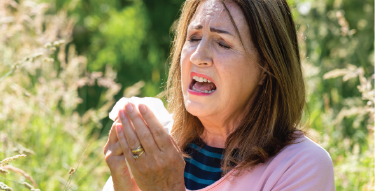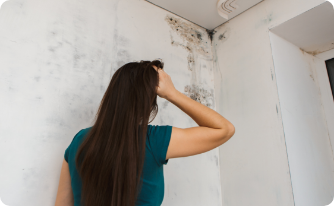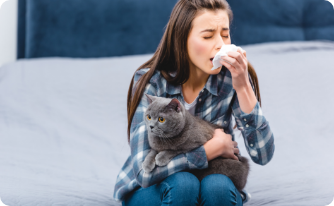Pollen is the most common trigger of seasonal allergies, which are also known as "hay fever or seasonal allergic rhinitis."1 Most plants produce pollen in spring and early summer, and pollen that float in the air is the main problem for allergy sufferers. Some trees that release airborne tree allergens can cause severe symptoms, while fruit trees fertilized by insects or birds such as cherry and pear trees do not usually cause hay fever.2
There are 3 main types of pollen allergies - grass pollen, tree pollen, and weed pollen allergy.1








